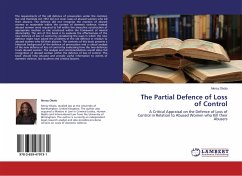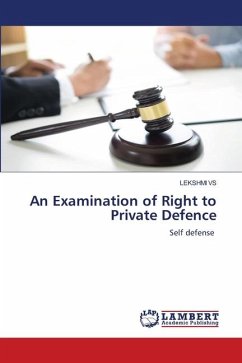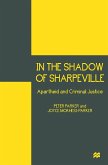The requirements of the old defence of provocation under the common law and Homicide Act 1957 did not cover cases of abused women who kill their abusers. The defence did not recognise the reaction of abused women as reasonable within the context of domestic violence, instead abused women were required to fall within the masculine construction of appropriate reaction or else construed within the framework of mental abnormality. The aim of this book is to evaluate the effectiveness of the new defence of loss of control by considering the ways in which the new defence might have solved the problems of the old defence in relation to abused women who kill their abusers. The contents of this book presents a historical background of the defence of provocation and a critical analysis of the new defence of loss of control by evaluating how the two defences treats abused women. The analysis and recommendations would allow full recognition of abused women within the defence of loss of control. This book should help educate and provide useful information to victims of domestic violence, law students and criminal lawyers.
Bitte wählen Sie Ihr Anliegen aus.
Rechnungen
Retourenschein anfordern
Bestellstatus
Storno








